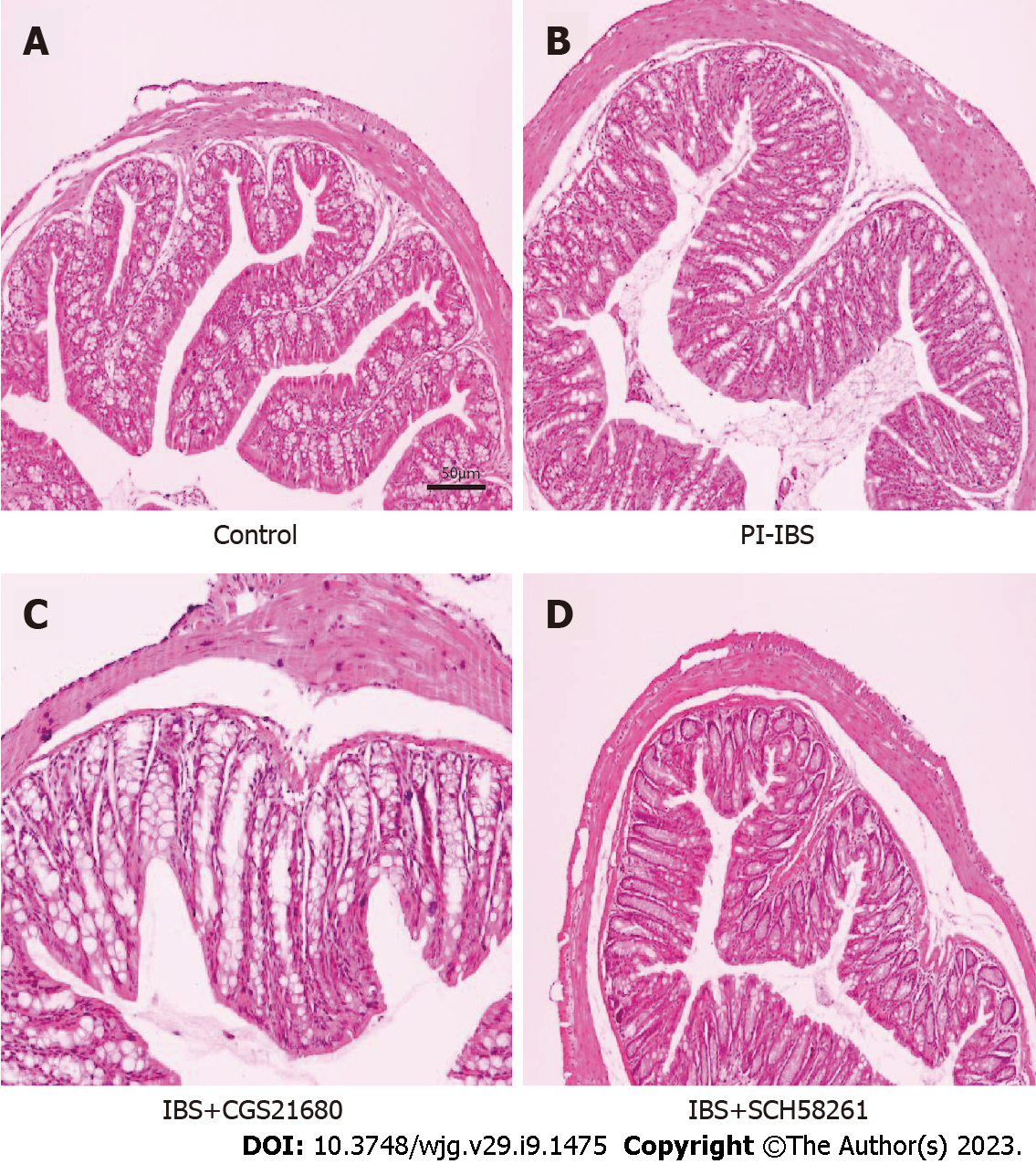Copyright
©The Author(s) 2023.
World J Gastroenterol. Mar 7, 2023; 29(9): 1475-1491
Published online Mar 7, 2023. doi: 10.3748/wjg.v29.i9.1475
Published online Mar 7, 2023. doi: 10.3748/wjg.v29.i9.1475
Figure 1 The effect of adenosine 2A receptor on the histopathological changes in post-infectious irritable bowel syndrome mouse.
A and B: The Post-infectious irritable bowel syndrome (PI-IBS) model (B) exhibits no substantial inflammatory alterations in its colon tissue compared to the control animal (A); C: Adenosine 2A receptor (A2AR) agonist CGS21680 leads to some inflammatory alterations in the colon tissue of the PI-IBS model mice, including the infiltration of certain inflammatory cells; D: A2AR antagonist SCH58261 relieves inflammation in the colon tissue of the PI-IBS model mice. A2AR: Adenosine 2A receptor; PI-IBS: Post-infectious irritable bowel syndrome. Scale bars, 50 μm.
- Citation: Dong LW, Chen YY, Chen CC, Ma ZC, Fu J, Huang BL, Liu FJ, Liang DC, Sun DM, Lan C. Adenosine 2A receptor contributes to the facilitation of post-infectious irritable bowel syndrome by γδ T cells via the PKA/CREB/NF-κB signaling pathway. World J Gastroenterol 2023; 29(9): 1475-1491
- URL: https://www.wjgnet.com/1007-9327/full/v29/i9/1475.htm
- DOI: https://dx.doi.org/10.3748/wjg.v29.i9.1475









